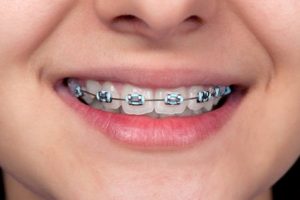Specialists
A general dentist is like a family practitioner in medicine. A general dentist can treat many areas while a specialist concentrates on a specific area of dentistry. Occasionally we will refer a patient to a specialist if we feel that treatment by a specialist will provide optimal results.
There are many areas of specialty in dentistry and once a dentist specializes, they are unable to practice anything other than that chosen specialty. Please see the list of dental specialties below that are on a referral basis only:
Oral and Maxillofacial Surgeon (OMS):
Oral and maxillofacial surgeons are dentists or physicians who:
- Completed a 4-7 year surgical residency
- Perform a wide range of procedures including surgery of both the bones and soft tissues of the face, mouth and neck.
- Biopsy and diagnose the necessary treatment of oral cancers.
- Remove difficult teeth and place dental implants, facial trauma, etc.
Periodontist:
Periodontists specialize in the diagnosis and treatment of the gum and bone, which support the teeth.
They help patients care for their gums, provide deep cleanings, preventative and surgical treatment of both soft and hard tissues including grafts and dental implants.
Your general dentist and hygienist determine whether you need to seek the care and special attention for your gums and bone at periodic exams and may refer you for ongoing care with a periodontist. Caring for your gums and the supporting tissue is just as important as caring for your teeth.
Pediatric Dentist:
Pediatric dentists provide the same type of care as your general dentist for children – usually up to 12 years of age. Some children are more cooperative and comfortable in an environment where children are the only focus of the practice. Most pediatric dentist offer nitrous oxide (laughing gas) to help calm the child.
Orthodontist:
Your orthodontist prevents, treats and corrects tooth position problems and jaw growth issues in both adults and children. With the use of braces, retainers, and other devices, an orthodontist helps straighten teeth and corrects the way your jaw lines up. Your dentist and/or hygienist may refer you to an orthodontist of your choice to evaluate and treat your teeth position and or jaw placement. Each person will be treated for different amounts of time based on their specific needs.
Endodontist:
The endodontist performs treatment on teeth that are dead or dying by removing the nerve of the tooth. This treatment may be a good option to hold on to teeth as opposed to having them extracted.


